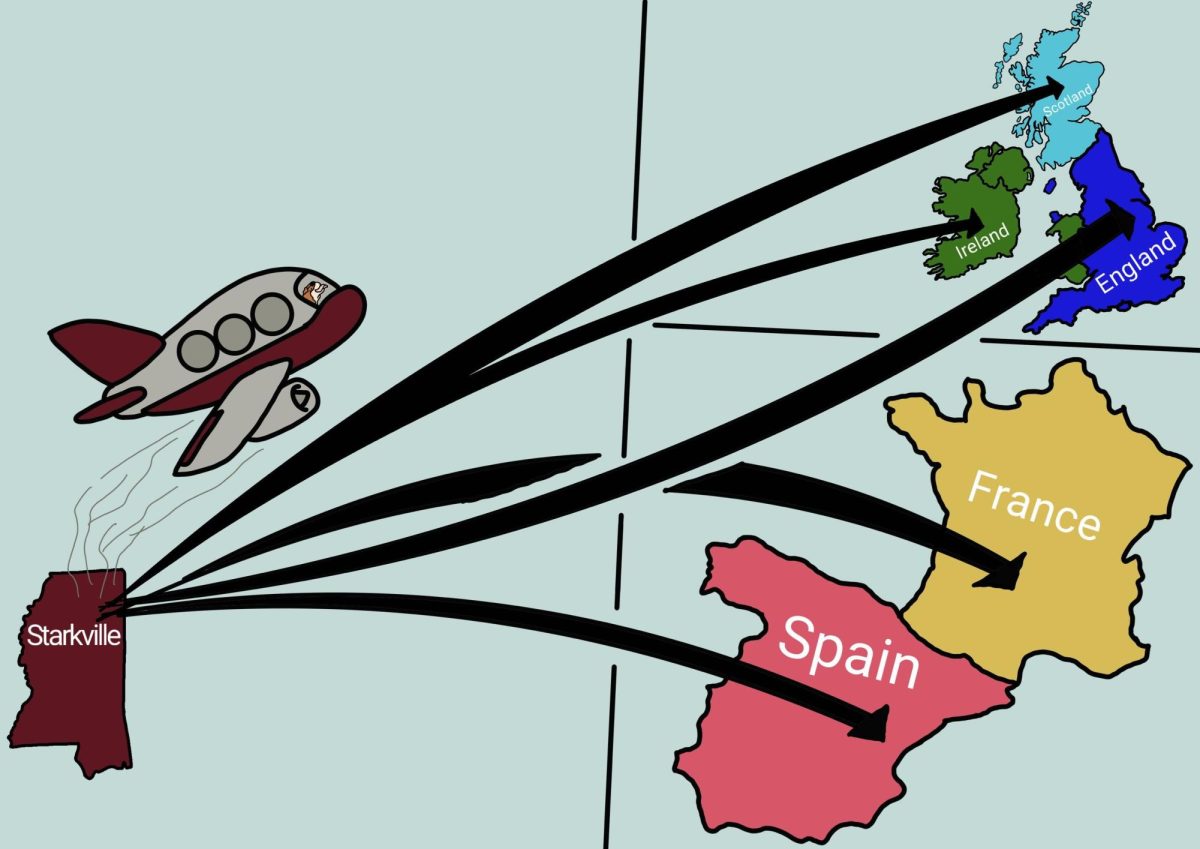Thursday night, in a packed Allen Hall classroom, the Gender Studies Department held a screening for the documentary, “The Hunting Ground.”
Released last year, “The Hunting Ground” tells the story of sexual assault victims on college campuses and how their school’s inaction affected the victims’ lives more than their assault.
The film’s opening paints the picture of hope with videos of prospective college students opening their acceptance letters, with tears of joy streaming down their face at the idea of attending their dream college.
The film’s tone dramatically shifts in the following minutes, telling stories of victims and sharing statistics on campus sexual assault.
Associate Professor of Sociology and Director of the Gender Studies Program, Kimberly Kelly, said she thinks this documentary is important to show at Mississippi State because people have no idea this is happening.
“I think it’s a good warning for women and men,” Kelly said. “But of course that’s not gonna fix anything, it’s not enough to tell women and men don’t get raped, we need to tell men ‘Don’t rape.’ I mean occasionally a woman is a rapist ,but it’s actually pretty rare.”
Following the film, Kelly was joined by three other panelists: Associate Professor of Sociology Nicole Rader, graduate student Sarah Rogers and Director of Title IX Brett Harvey.
The first to speak to the 200-plus attendees of the event was Nicole Rader. Rader reiterated stats from the film of sexual assault on campus and also told the crowd different ways they could help stop sexual assault on campus.
“I think many of us have been in a situation where we saw something that we knew wasn’t quite right and we should’ve done something,” Rader said. “In that moment I think we can all be better bystanders.”
Rader described a scenario where this could happen.
“Maybe you see one of your girlfriends who’s really really drunk and she’s talking to someone you don’t feel right about. You can walk up to your friend and say ‘Hey, let’s go. It’s time to go home,” Rader said. “You can go up to the guy’s friend and talk to him. There are lots of ways to be a good bystander if you feel like something isn’t going well. Being a good bystander is something we can all do.”
Fraternities were also an important subject of not only the documentary but also of the panel. Kelly and Rogers spoke at length about fraternities and sororities and what they offer to Universities in the long run.
“Men who graduate from their alma maters who ran fraternities donate on average about 100 million dollars a year to their alma mater, so this is a big business of fraternities and sororities pumping money back into their universities,” Rogers said.
Kelly and Rogers said they feel this “big business” that fraternities and sororities give schools is much less of an incentive to actively investigate sexual assault claims.
“(Fraternities) are really a pipeline to Congress,” Rogers said.
“A pipeline to upper level politics. So if we are putting men in positions of power who live in a rape culture and see these things and normalize them, then how are we gonna end the rape epidemic that’s going on right now?”
The last person to speak to the audience was Brett Harvey. According to the United States Department of Justice, Title IX is a comprehensive federal law that prohibits discrimination on the basis of sex in any federally funded education program or activity.
Harvey promised attendees his office was a complete open book and they have received nothing but the utmost support from MSU when it comes to investigating sexual assault allegations.
If students have experienced sexual assault or other sexual misconduct and need help, call the MSU Safeline at 662-325-3333.
Student Counseling Services provides confidential sexual assault advocacy. To reach them, call 662-325-2091.

























































































